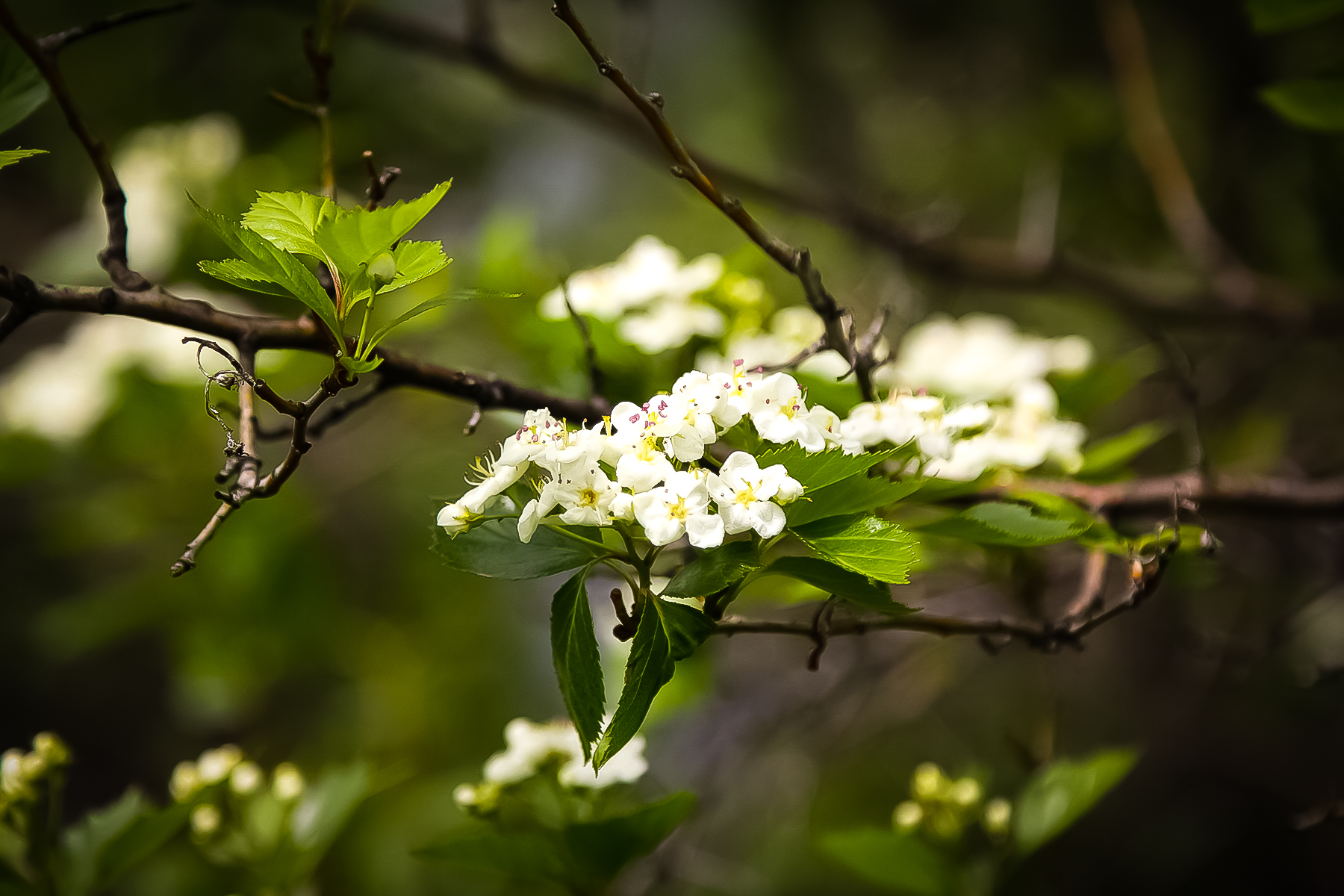Saturday morning I dig around in the garden begrudgingly. I was hoping for a spring storm and a chance to hole up inside, but it’s unexpectedly nice and my garden is unforgivingly weedy. I suit up in my overalls and boots, shoo an errant chicken from the garden area, and begin the work of turning soil, shaking precious dirt from weeds, and kicking myself for not putting the garden boxes properly to bed last fall.
The weeds that flourished over the winter are tough and hardy, and in the last garden box I find a few remnant onions and dahlia tubers I overlooked in the fall. Every October I am still hopeful my garden has a couple more weeks of production in it before the freeze really sets in. I get busy with fall activities, realizing one morning that the ground has been layered in frost for a week and the garden has turned black. Depressed, or relieved, I hunker in for the darkness of winter. Today I am paying my dues.
Some things can hold on through the darkness. The onions seem fine. I think the dahlias will still bloom nicely once I replant them, and there are always seeds of tomatoes and zinnias that spring up on their own in June, despite the frigid temperatures they’ve wintered through. Trial and error teach me which plants are hardy and which ones need more care than I’m willing to give. I carefully dug and dried and stored most of my dahlias last fall because I didn’t want to risk losing any to the cold, but those few that I left accidentally might teach me something about their hardiness. Maybe they can withstand a prolonged season of darkness.
I hope I can.
Allow Grief
Last summer I lost my father after a rollercoaster of prognoses, remissions, hope, and then a sudden decline. It felt sudden, yet he’d been battling cancer and other complications for years. He was strong and fighting, and then he was gone.
A sign hangs in my office with the phrase “Every cloud has a silver lining.” I bought it for aesthetics mostly. Experience has taught me that sometimes clouds are just clouds—darkening the day and setting the mood. The edges are often lined with gritty endurance rather than flashes of glory. I grit my way through worship service on Sunday and then gut out a discussion about Aeneas’ visit to the underworld in class on Wednesday, wondering why all things have to point to the edge of a cloud.
I need lament to cover me, fully envelop me, but I live in a world that only wants me to rejoice, to be happy, to sing the victory songs at church. Grief teaches me to be comforted with Christ’s presence, which is a gift but not a silver lining. I am in the middle.
The answers may be better than I think in the end, and I know the ultimate silver lining comes through blood money, paid for the Sacrifice that gives me hope.
But hope is a discipline, a sheer gutting-it-out work of believing the best thing instead of the worst.
Allowing grief is not a beautiful idea and my imagination has to stretch to hold it. I want to hold my breath and grit through it, but I learn my spiritual body needs the same kind of breath during this stretch as my physical body needs. Muscles lengthen through breath, through release. Grief doesn’t feel good but it can be good, and it’s natural because the heart of God grieves, too.
Jesus did not go merrily to His cross simply because He knew the silver lining. He wept and He agonized and I’ll bet there were clouds that seemed to have no lining at all.
What I have a hard time imagining with my finite brain is the eternity of human heartache that God holds—all the grief of a world gone mad, all the winters the world has ever gone through. He wills that none should perish, yet many do. I can’t imagine what an all-knowing and all-seeing God feels as He holds all things together, but I try to imagine Him also holding all the joy, all the hope, all the promises. Grief exists and joy exists, and both are true.
Allow Joy
In the corner of my garden the black-eyed Susans are a mix of the death of last year’s foliage and a few green shoots of future glory. I pile the onions and tubers near the gate and then carefully clear away the dead leaves, willing the shoots to multiply. The flower was a gift from my husband years ago, starting as a single pot of bright yellow and black that now dots the beds in my yard and lines the fence around the garden.
They are survivors.
A friend sends me a picture she painted of a black-eyed Susan. The colors are inverted—petals black, the center a deep yellow, leaves and vine-y stems in pale grey and butter yellow encircle the flower head. In small, delicate script she has written “allow joy”.
She was unsure of the colors when she painted it but I immediately love it—something about nature all moody like that, all dark but lovely, the world inverted and still glorious because it cannot help but be the way it was created. The words she wrote are an admonishment to me. Not a silver lining—just an open-eyed acceptance.
Somehow in this world of cycles and waves and mountains and valleys, of seasons, of people dying and people being born and born again, all in the same day, God allows for both joy and grief. There is room, and ignoring one or the other is no nobility. The most tiring of days are the ones where I hold back, when grief wants to wash over me but I resist it to save face. There are steps I must go through but I want to skip ahead, make-believe, gallop my way through grief in victory. I want to hold my breath until it passes. But grief does not leave one a victor—grief conquers. I think that’s part of the plan.
The happy part is that joy will come unbidden, without conjuring, unannounced. The sad part is that grief will ride in on its wake, and what can you do but take them both as they come? Allow joy, allow grief, allow the wild swing of emotions and let yourself feel things. That’s been the lesson for me. I would never prescribe “Three Steps for Getting Through Grief” but I can share from the middle of the semester what I am learning, as a student enduring.
Allow joy is one of them.
Find the most hopeful answers would be another.
Recognize who’s alongside you.
Bring lament to church.
Don’t feel bad when you feel happy.
Don’t belittle your own losses or compare them with others.
Don’t give yourself a time limit.
Give everyone else time.
See someone else’s grief.
Timing is important in the garden. If I put my dahlias in the ground the week of my birthday, they’ll be blooming the week of Dad’s birthday. If I plant tomatoes too early they will surely freeze. Spring is not the time to put the garden to bed, as everything is coming awake to warm sun and longer days, but I do things out of order sometimes—too late, too little, too much, too early.
Like apple trees that get antsy on the first warm day and bust out a smattering of blossoms, then freeze the following week, my timing is not always right. But that tree doesn’t die. It might miss a season of harvest, but if it is otherwise healthy it will live to bloom again.
I’m convinced a season of darkness is essential for my health, as odd as it sounds and as bad as the timing is. I don’t love it, but all of nature and Christ Himself show me a life in cycles: waking and sleeping, springtime and harvest, death and resurrection. Remnants from each cycle carry over to the next, but eventually, finally, eternally at last, joy is the victor. That’s the best way I can imagine it—this world, inverted.
The featured image is courtesy of Lancia E. Smith and is used with her glad permission for Cultivating and The Cultivating Project.
Tresta Payne learned to appreciate the beauty of God from the landscape of the Pacific Northwest, where she lives with her husband and four children. She builds her own MFA in creative writing through homeschooling her children and tutoring others, finding every excuse to learn and read and grow. After twenty years of homeschooling she is ready for someone to hand her that degree. She enjoys a good, deep discussion with a balance of differing opinions, and works out her own thoughts in writing. Tresta walks a lot on the wild country roads around her home, with her dog and her thoughts and the nearness of God to keep her company.
Leave a Reply
A Field Guide to Cultivating ~ Essentials to Cultivating a Whole Life, Rooted in Christ, and Flourishing in Fellowship
Enjoy our gift to you as our Welcome to Cultivating! Discover the purpose of The Cultivating Project, and how you might find a "What, you too?" experience here with this fellowship of makers!


What a beautiful reflection, Tresta. I especially love the line, “Not a silver lining – just an open-eyed acceptance.” Honesty is much more beautiful than perfection.
Thank you, Athena. And amen to honesty over perfection!
I’m so glad you write. Thanks friend!
Thank you for your words. Lament and hope at the same time. It is getting harder! And yet I’ve seen God’s goodness over and over, so in some ways it is getting easier too. I was going to say that resilience is not a renewable resource, but maybe it is.
Tresta, your steps to dealing with grief is a gift to read.
And I love this line about seasons–“If I put my dahlias in the ground the week of my birthday, they’ll be blooming the week of Dad’s birthday. ”
Dahlias can be a reminder each year of your dad….
Perfect in every way my friend.
Thank you for these words.